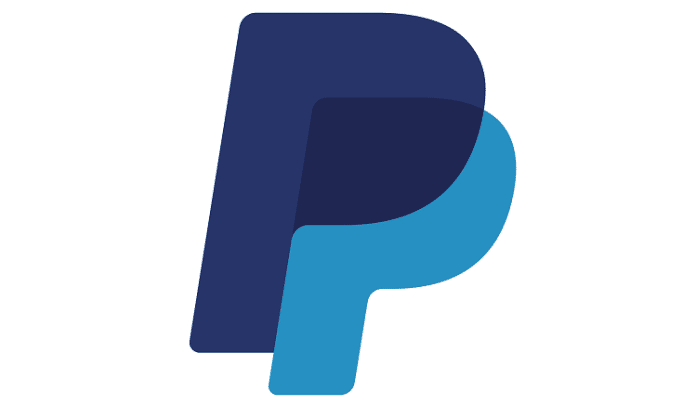Bias Alert: Activist – This story revolves around a likely activist movement at a major U.S. tech company. We have attempted to remain neutral on whether or not this activism was a good thing in order to allow you to read the facts and make up your own mind. We do include an opinion on this matter clearly demarcated and easily skipped over by readers.
Bias Alert: One-Sided – This story uses a quote from a known conservative journalist. The quote was supplied by the company involved and was published unaltered. None of the author’s opinions are included.
The internet went wild when the world’s largest payment service, PayPal, launched a new Acceptable Use Policy (AUP) and started notifying users about it over the weekend. The reason why is the new policy would have allowed PayPal to fine any user or business $2,500 for using speech they disagreed with including not supporting ideas like kids being gender fluid or non-binary.
The tech community was first alerted to this when ex-PayPal employee David Marcus revealed it on his Twitter around noon today.
It’s hard for me to openly criticize a company I used to love and gave so much to. But @PayPal’s new AUP goes against everything I believe in. A private company now gets to decide to take your money if you say something they disagree with. Insanity. https://t.co/Gzf8faChUb
— David Marcus (@davidmarcus) October 8, 2022
“It’s hard for me to openly criticize a company I used to love and gave so much to. But @PayPal’s new AUP goes against everything I believe in. A private company now gets to decide to take your money if you say something they disagree with. Insanity. ” – David Markus
Essentially the policy gave PayPal a broad power to determine if a user or business using PayPal had spread misinformation in order to make a sale or obtain funds via PayPal and if it was determined to be so by PayPal and PayPal alone then they would debit the $2,500 fine from the users account.
Starting on November 3, 2022, PayPal's new 'acceptable use policy' allows them to 'withdraw' $2,500 from your account based on their SOLE discretion if you've said things which include "misinformation" or "discrimination" of groups or individuals based on gender identity.
— Alec Torelli | SoCal (@AlecTorelli) October 8, 2022
Texan and Tech billionaire Elon Musk agreed with David Marcus that this was a heinous thing to do to users
Agreed
— Elon Musk (@elonmusk) October 8, 2022
Elon and David weren’t alone. Zero of the replies or quote tweets we could find appeared to agree with PayPal’s new AUP.
Deleting @PayPal, pulled all my funds out.
— David Herrmann (@herrmanndigital) October 8, 2022
Thank god these companies are getting arrogant. The world needs them to fail. There are way better options.
— Preston Pysh (@PrestonPysh) October 8, 2022
So if I use PayPal to process a payment for a "Florida Strong" t-shirt that's been banned on Facebook, and PP agrees with FB that it harms someone, it could cost me $2,500. 🤪🤪 So long, @PayPal!
— Ellen Anderson (@MochaLite) October 8, 2022
I'm going to make sure everything I pay for with PayPal will somehow total $19.84.
— DCGreenZone1 (@DCGreenZone) October 8, 2022
According to an article by Caroline Downey for Yahoo! News, PayPal quickly walked back this new AUP and even claimed it was never meant to go live. The statement PaypPl put out about the incident read in part:
“An AUP notice recently went out in error that included incorrect information. PayPal is not fining people for misinformation and this language was never intended to be inserted in our policy. Our teams are working to correct our policy pages. We’re sorry for the confusion this has caused” – PayPal statement to National Review
WARNING OPINION INCOMING: – IGNORE THIS IF YOU WANT TO MAKE UP YOUR OWN MIND We strive to keep our opinions out of articles and only cover facts, but the above quote is clearly PR damage control spin (in our editorial opinion) meant to smooth things over with a riled up internet across both sides of the American political aisle. The most interesting part is when they state “this language was never intended to be inserted in our policy” note that PayPal didn’t deny drafting this addition to their AUP and they couldn’t deny that it actually went live. This points to the likelihood that internally someone at PayPal gave this change the greenlight and worked on it for some time, likely to appease activist employees or even an activist executive demanding that PayPal force users to abide by their ideological stances. We have seen this type of behavior increasingly out of big tech and big corporate America and it often has the support of senior executives, board members, and CEOs. For example Disney’s CEO appears to be highly supportive of their gender ideology movement and both Google and Apple have made concessions to activist staff in recent past. Other companies that have been hit with this include Microsoft, Netflix, LinkedIn, Twitter, Facebook, Reddit, YouTube, and others.
An AUP is also a really official document and the ability to update it is likely limited to a select few people inside of the company, the updates are probably overseen by a select few managers or executives, and the drafting of changes likely goes through a rigorous process across the company’s operations, legal, and marketing teams. Before changes are given the greenlight there are probably several energized and robust discussions about it and a lot of work done to estimate the downstream impact on users, revenue, and even share price.
Finally, we know the change happened on the morning of Saturday October 8th. Silicon Valley tech workers famously barely work while at work during the weekday and instead enjoy the abundance of lavish gifts, recreational activities, and food offered by tech companies (when they go to the office of course). It seems highly out of place for someone used to these working conditions to wake up early on a Saturday morning and make this change.
There is every chance that this AUP change made it through almost all of the internal ranks at PayPal and was cut at the last second, then taken live by an activist employee when no one was looking. Most likely that activist employee, probably a senior manager of some kind, either hoped that this would win over the last few executives holding out or that it would bring a lot of attention to their cause and rally more tech workers in California to their side. /END OPINION
PayPal has had a long and checkered history of taking funds from users and either not giving them an explanation or making it something vague. This new AUP though took things to an entirely new level and gave the company the broadest set of powers ever to take money from users, though at least we can breathe a little since they only wanted to take money from a user’s PayPal accout not from their bank accounts or credit cards.
Thanks Y’all
This article is partly based on the journalistic coverage of Caroline Downey from National Review via Yahoo! News. We used Caroline’s article to validate facts found on Twitter and cited a quote she recieved from PayPal directly. We highly recommend reading her full article here: PayPal Pulls Back, Says It Won’t Fine Customers $2,500 for ‘Misinformation’ after Backlash
PayPal is headquatered in San Jose, California
PayPal’s stock is down -53.74% so far this year and has lost $104.77 per share in value since the start of the year.
Featured image is the PayPal logo


![[Video] Lululemon Fired Employees for Calling the Cops on Thieves lululemon fires employees for reporting theft to police video](https://texaswatcher.com/wp-content/uploads/2023/05/lululemontheives-ingeorgia-video-218x150.png)
![[Video] Thieves in California Steal Thousands of Dollars of Merchandise from an Apple Store While Employees Tell Customers to Not Get Involved apple store in california robbed, employees helped](https://texaswatcher.com/wp-content/uploads/2022/12/california-thieves-rob-apple-store-218x150.png)
![[Video] Jacksonville, Florida Rapper La Jarvo Gets Attacked by Rival Rappers Luhh Ben and Hxrdhexd gang rapper violence in jacksonville, fl](https://texaswatcher.com/wp-content/uploads/2022/11/jacksonville-gang-rapper-violence-218x150.png)
![[Video] A Texas Constable and Two of his Deputy’s Were Caught on Bodycam Robbing a Home deputy laquenda banks stealing from a home in texas](https://texaswatcher.com/wp-content/uploads/2022/10/deputy-constable-laquendabanks-stealing-fromhome-218x150.png)
![[Video] Tiffany Gomas, “Crazy Plane Lady” Who Caused Flight Delays, Has Posted an Apology Video tiffany gomas crazy plane lady apology video](https://texaswatcher.com/wp-content/uploads/2023/08/tiffany-gomas-crazyplanelady-apology-218x150.png)
![[Video] Dallas Men Use Former DISD File Cabinet to Barbecue Meats Texas Style dallas filing cabinet bbq smoker video](https://texaswatcher.com/wp-content/uploads/2023/04/dallas-bbq-filecabinet-218x150.png)
![[Video] Bryan Cranston & Aaron Paul Send a TikTok to Someone Who Has Never Seen Breaking Bad After Meeting a Fan in a Dallas, TX Parking Lot bryan cranston and aaron paul talk to a dallas resident about not watching breaking bad the tv show thumbnail](https://texaswatcher.com/wp-content/uploads/2023/01/bryancranston-aaronpaul-tiktokvideo-dallastx-haventwatchedbreakingbad-218x150.png)
![[Video] Customers Started a Fight With Waffle House Employees in Austin, TX waffle house fight in austin, tx](https://texaswatcher.com/wp-content/uploads/2022/12/wafflehouse-fight-austintx-2022-218x150.png)
![[Video] A Texas Man Pours Beer Into His Cowboy Boot and Then Drinks It jay arnold drinks beer from his boot at turnpike troubadours concert in houston texas](https://texaswatcher.com/wp-content/uploads/2022/06/jayarnold-drinksbeerfromhisboot-218x150.png)
![[Video] A Family of River Otters Running Near a Living History Museum river otters running living history museum](https://texaswatcher.com/wp-content/uploads/2023/07/river-otters-sayhi-livinghistorymuseum-218x150.png)
![[Video] Man Stops to Rescue a Kitten After Leaving the Gun Range, Gets Ambushed by More Kittens man gets ambushed by litter of kittens](https://texaswatcher.com/wp-content/uploads/2022/06/man-gets-ambushed-by-litter-of-kittens-218x150.png)
![[Video] Doggo Does a Happy Dance When They See Their New Sibling dog meets new puppy friend and does happy dance](https://texaswatcher.com/wp-content/uploads/2022/04/doggo-meets-new-puppy-happydance-218x150.png)
![[Video] University of California Irvine Student Says United States is Evil uc irvine student matthew guevara says the united states is evil video thumbnail](https://texaswatcher.com/wp-content/uploads/2023/01/ucirvine-studentleader-americaisevil-218x150.png)
![[Video] Slave Labor and Child Labor Exposed at Cobalt Mines in Africa Used for Rechargeable Vehicle Batteries shocking conditions at a congo cobalt mine exposed on joe rogan podcast](https://texaswatcher.com/wp-content/uploads/2022/12/shocking-conditions-cobalt-mine-congo-218x150.png)



![[Video] A Barber Smokes Meth While Cutting Someones Hair barber smokes meth](https://texaswatcher.com/wp-content/uploads/2022/04/barber-smokes-meth-100x70.png)
![[Video] Doggo Does a Happy Dance When They See Their New Sibling dog meets new puppy friend and does happy dance](https://texaswatcher.com/wp-content/uploads/2022/04/doggo-meets-new-puppy-happydance-100x70.png)
